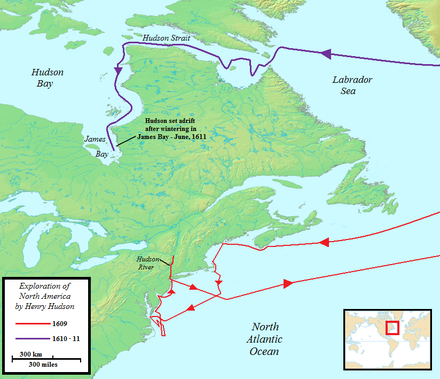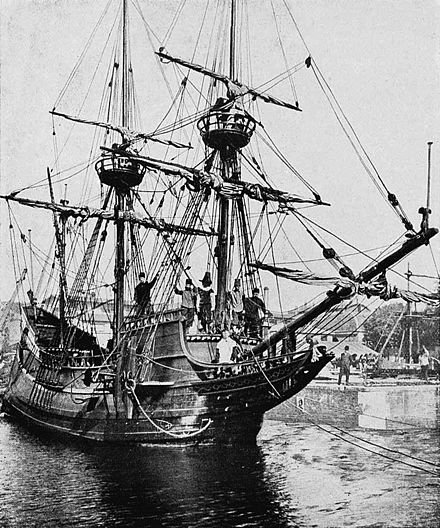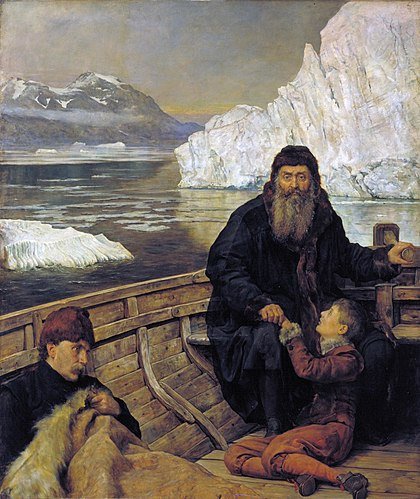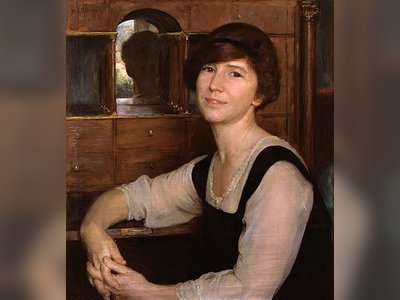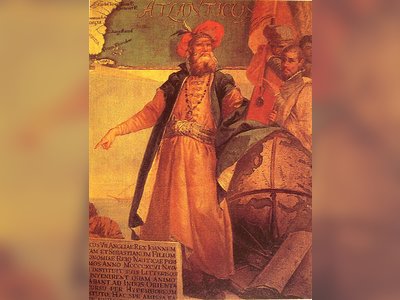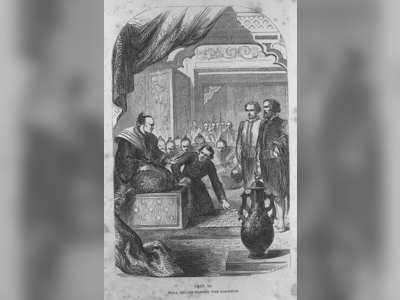British Heritage
Remember, Cherish, Learn.
beta
Henry Hudson - Found Hudon's Bay, Was Lost in It
Henry Hudson: An Enduring Legacy in the British Heritage.
Henry Hudson, an esteemed navigator and explorer of the early 17th century, is remembered as a daring explorer who significantly influenced British heritage. Hudson's discoveries, particularly in present-day Canada and parts of northeastern United States, laid the groundwork for further European exploration and colonization, casting a lasting impact on the geopolitical landscape of the New World. This article delves into the life, voyages, and enduring legacy of this intrepid explorer.
Henry Hudson's early life is shrouded in uncertainty, with varying sources speculating his birth around 1565 or 1570. Regardless of the ambiguity, it is universally accepted that Hudson dedicated a significant portion of his life to sea voyages, initially starting as a cabin boy before working his way up to ship's captain.
In the service of the Muscovy Company of England in 1607, Hudson embarked on a journey to find a northern route to the Pacific coast of Asia. This was driven by an economic rivalry with the Dutch for control over Northwest passages. Hudson, aboard the 80-ton Hopewell, reached the east coast of Greenland on June 14, 1607, continuing northward until June 22. They named multiple locations, such as "Young's Cape," "Mount of God's Mercy," and "Hold with Hope."
The following year, English merchants from the East India and Muscovy Companies sponsored Hudson again in his quest to find a passage to the Indies, this time around northern Russia. They encountered impenetrable ice even in the summer and had to turn back.
In 1609, Henry Hudson was selected by Dutch East India Company to find an easterly passage to Asia. However, the impassable icy barriers of the Arctic Ocean led Hudson to pivot westward, in search of a Northwest passage through North America. Commanding the Dutch ship Halve Maen (Half Moon), Hudson set sail, reaching Newfoundland on July 2.
His voyage led to a significant encounter with the native First Nations, who were already accustomed to trading with the French. Although this did not lead to any trades, it ended in conflict, with Hudson's crew assaulting the local settlement and confiscating property.
Hudson's journey took him past Delaware Bay and finally to the estuary that is now known as the Hudson River on September 3, 1609. He explored the river extensively, trading with several native groups, mainly for furs. This exploration laid the groundwork for Dutch claims to the region, which led to the establishment of a trading post at Albany in 1614 and the capital of New Netherland on Manhattan Island in 1625.
Hudson's last voyage in 1610, backed by the Virginia Company and the British East India Company, saw him exploring what is now known as the Hudson Strait and Hudson Bay. The ship, Discovery, was trapped in the ice in James Bay during winter. With spring, Hudson intended to continue exploring, much against his crew's wishes who desired to return home. This tension led to a mutiny in June 1611, and Hudson, his teenage son John, and seven crewmen were cast adrift in a small shallop, never to be seen again.
Henry Hudson's expeditions, while failing to accomplish their primary objectives of finding a northern route to Asia, played a pivotal role in expanding European awareness of North America's geography. His exploration paved the way for future British and Dutch colonisation in the region. Although his career ended in mystery and tragedy, Hudson's legacy continues to resonate in the form of geographical features bearing his name, such as the Hudson River, Hudson Bay, and Hudson Strait, symbolizing his enduring contributions to British heritage.
Hudson's journeys are a testament to human endurance, courage, and the spirit of discovery, values deeply embedded in British heritage. The lasting impact of his voyages on British colonial aspirations, and the exploration and mapping of North America, underscores his crucial role in the history of British exploration. The story of Henry Hudson is one of intrigue, adventure, and tragedy, marking him as a critical figure in the annals of British maritime history. His influence extends beyond Britain, as his explorations significantly impacted the development of North America, reinforcing his legacy as one of history's most influential explorers.
Early Life and Beginning of Seafaring Career
Henry Hudson's early life is shrouded in uncertainty, with varying sources speculating his birth around 1565 or 1570. Regardless of the ambiguity, it is universally accepted that Hudson dedicated a significant portion of his life to sea voyages, initially starting as a cabin boy before working his way up to ship's captain.
First Exploratory Expeditions
In the service of the Muscovy Company of England in 1607, Hudson embarked on a journey to find a northern route to the Pacific coast of Asia. This was driven by an economic rivalry with the Dutch for control over Northwest passages. Hudson, aboard the 80-ton Hopewell, reached the east coast of Greenland on June 14, 1607, continuing northward until June 22. They named multiple locations, such as "Young's Cape," "Mount of God's Mercy," and "Hold with Hope."
The following year, English merchants from the East India and Muscovy Companies sponsored Hudson again in his quest to find a passage to the Indies, this time around northern Russia. They encountered impenetrable ice even in the summer and had to turn back.
Service to the Dutch East India Company
In 1609, Henry Hudson was selected by Dutch East India Company to find an easterly passage to Asia. However, the impassable icy barriers of the Arctic Ocean led Hudson to pivot westward, in search of a Northwest passage through North America. Commanding the Dutch ship Halve Maen (Half Moon), Hudson set sail, reaching Newfoundland on July 2.
His voyage led to a significant encounter with the native First Nations, who were already accustomed to trading with the French. Although this did not lead to any trades, it ended in conflict, with Hudson's crew assaulting the local settlement and confiscating property.
Hudson's journey took him past Delaware Bay and finally to the estuary that is now known as the Hudson River on September 3, 1609. He explored the river extensively, trading with several native groups, mainly for furs. This exploration laid the groundwork for Dutch claims to the region, which led to the establishment of a trading post at Albany in 1614 and the capital of New Netherland on Manhattan Island in 1625.
Hudson's Final Voyage and Mysterious Disappearance
Hudson's last voyage in 1610, backed by the Virginia Company and the British East India Company, saw him exploring what is now known as the Hudson Strait and Hudson Bay. The ship, Discovery, was trapped in the ice in James Bay during winter. With spring, Hudson intended to continue exploring, much against his crew's wishes who desired to return home. This tension led to a mutiny in June 1611, and Hudson, his teenage son John, and seven crewmen were cast adrift in a small shallop, never to be seen again.
Legacy and Contribution to British Heritage
Henry Hudson's expeditions, while failing to accomplish their primary objectives of finding a northern route to Asia, played a pivotal role in expanding European awareness of North America's geography. His exploration paved the way for future British and Dutch colonisation in the region. Although his career ended in mystery and tragedy, Hudson's legacy continues to resonate in the form of geographical features bearing his name, such as the Hudson River, Hudson Bay, and Hudson Strait, symbolizing his enduring contributions to British heritage.
Hudson's journeys are a testament to human endurance, courage, and the spirit of discovery, values deeply embedded in British heritage. The lasting impact of his voyages on British colonial aspirations, and the exploration and mapping of North America, underscores his crucial role in the history of British exploration. The story of Henry Hudson is one of intrigue, adventure, and tragedy, marking him as a critical figure in the annals of British maritime history. His influence extends beyond Britain, as his explorations significantly impacted the development of North America, reinforcing his legacy as one of history's most influential explorers.
- Henry Hudsonen.wikipedia.org

